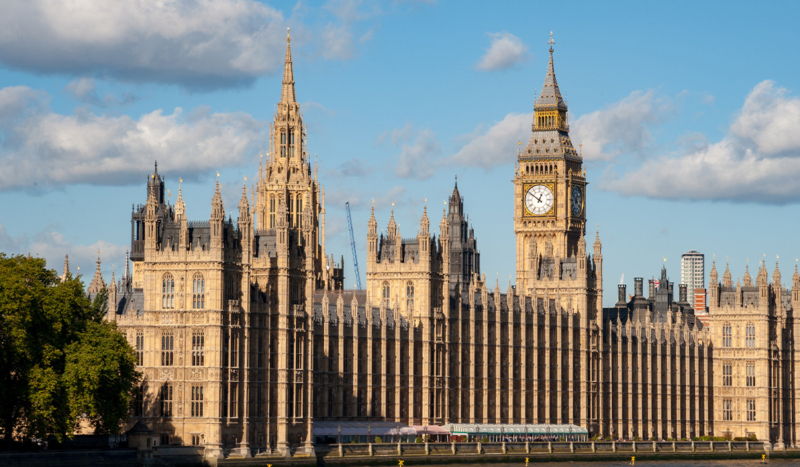
Adobe Stock
The United Kingdom Parliament’s House of Commons on June 20 voted 314-291 in favor of legalizing assisted suicide in England and Wales – just days after they voted 397-137 to decriminalize abortion up to birth – marking a dark turning point for their end-of-life policy.
Members of Parliament (MPs) had a three-hour debate in the lower Parliament chamber before the crucial vote for the Third Reading of the assisted suicide “End of Life” bill, which Labor MP Kim Leadbeater spreadheaded, the BBC reported.
During the debate, Liberal Democrat Member of Parliament (MP) Luke Taylor argued that voting to have control over the end of life is “a chance to neatly bookend the week” after the House of Commons’ June 17 abortion vote promoting individuals’ “right to decide how one might bring life into the world.”
“We have a chance to neatly bookend the week by establishing the existential right of the individual when given a terminal diagnosis to be given the right to choose how one might exit this earthly realm,” he said.
In a June 20 statement, Southwark Archbishop John Wilson decried the vote’s outcome.
“This is a terrifyingly dark week in British history, as MPs vote for legislation which endangers the lives of unborn children, and promote legislation which will endanger vulnerable adults and the elderly,” he said. “All those who stand on the side of life, and who uphold the dignity of human life from conception to natural death, need to raise their voice in defence of those who are voiceless. Irrespective of religious belief this is a matter of basic justice for every human life.”
Archbishop John Sherrington, the lead bishop for life issues for the Bishops’ Conference of England and Wales, stated that the prelates “are shocked and disappointed” by the outcome.
Disability Rights UK issued a statement June 20 that they “are devastated” by the bill being passed.
“We extend our solidarity to all the Disabled people, DPOs, campaigners and MPs who have worked together to oppose this bill and have Disabled voices highlighted,” the group stated.
They later added that they will continue working with other groups “to campaign against the Bill, highlighting ableism and inequality, inadequate protections, unsatisfactory Bill process and lack of engagement with Disabled people.”
Robert Clarke, director of advocacy for Alliance Defending Freedom (ADF) International, called the decision “a grave and chilling development for the United Kingdom.”
“When the state begins to endorse death as a solution to suffering, the most vulnerable—those who are elderly, disabled, depressed, or alone—will soon find themselves wondering if their lives are still worth living, or worse, if they’re expected to die,” Clarke said. “The consequences of this decision will echo far beyond the chamber walls. It opens the door to coercion, and to lives cut short out of fear, despair, or pressure. No safeguard can undo the message this bill sends: that some lives are no longer worth protecting.”
The bill now proceeds to the House of Lords, which will scrutinize it further and vote on it.
MPs had previously advanced the bill in a 330-275 vote in November 2024. Yuan Yi Zhu, a research associate at the University of British Columbia’s Centre for Constitutional Law and Legal Studies, noted in a June 20 X post that the narrow vote June 20 reflected how the bill had lost the support of many MPs — and that anti-assisted suicide efforts can continue to bring more officials to reject it.
“We will fight this bill at every stage in the House of Lords,” Zhu wrote. “We halved its majority in the House of Commons at third reading, and one day we will extinguish the idea that there are some lives that are not worth living.”
Archbishop Sherrington similarly emphasized that the bill has not reached the end of its parliamentary stage, “and we should not lose hope.” He implored Catholics to pray for MPs as they consider the bill further and for the government to protect life at all stages.
“The Bishops of England and Wales believe that improving the quality and availability of palliative care offers the best pathway to reducing suffering at the end of life,” he said. “We will continue to advocate for this, and we ask the Catholic community to support those who work tirelessly to care for the dying in our hospices, hospitals and care homes.”
Archbishop Wilson also urged the faithful to be fearless in their advocacy for the dignity of human life.
“As followers of the Lord Jesus, we are a people of life,” the archbishop said. “Jesus is our hope and in his name we will tirelessly make the case for the defence of human life. Life is sacred. It is a gift from God and we must never be afraid to speak this truth. I urge you to continue to pray and campaign in defence of human life.”
